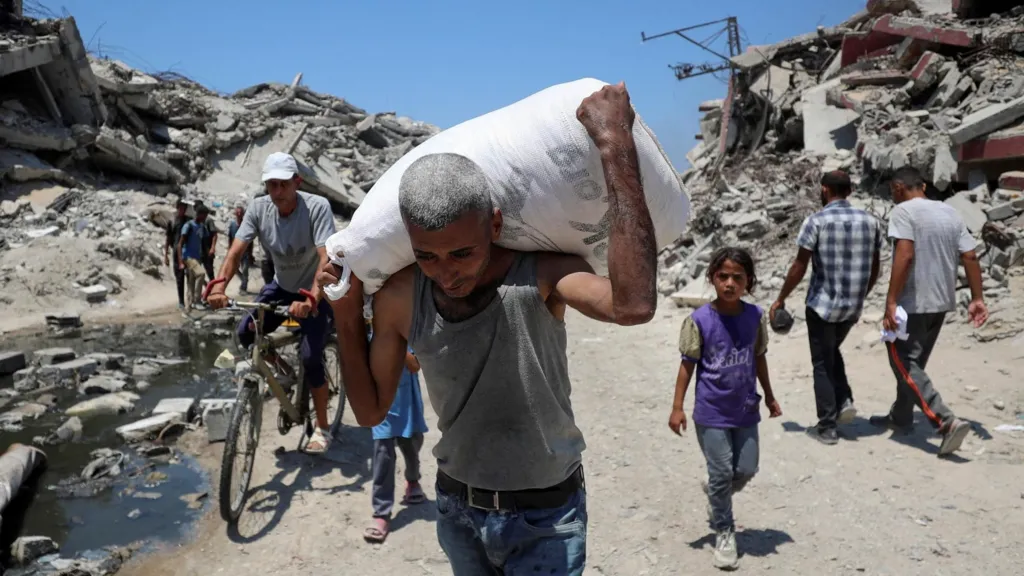United Nations Emergency Relief Coordinator Tom Fletcher has welcomed Israel’s recent decision to allow limited humanitarian aid in Gaza Strip, describing it as a “welcome development”.
However, he warned that the current assistance remains grossly insufficient—merely a “drop in the ocean” compared to the urgent, large-scale needs of civilians suffering under a months-long blockade.
During an interview on BBC Radio 4’s Today programme, Fletcher made it clear:
“It’s the beginning, but the next few days are really make or break.
We need to deliver at a much, much greater scale.
We need vast amounts of aid going in, much faster”.
The Limited Humanitarian Aid in Gaza Cannot Cover the Massive Needs
On the first day of Israel’s announced 10-hour daily tactical pause, around 120 truckloads of food were cleared from crossings by UN and aid agencies, while Jordan and the UAE conducted 28 airdrops of food packages.
Yet Fletcher highlighted that UN agencies collected fewer than ten of those trucks—an order of magnitude lower than during previous ceasefires, when 600–700 trucks entered Gaza daily.
Fletcher also shared harrowing details: many food deliveries were stolen by desperate civilians as trucks moved through unsecure zones, and logistical obstacles like bureaucracy and security delays continue to hamper relief efforts.
Alarming Health Crisis and Rising Death Toll
Gaza health ministry reported 14 new malnutrition-related deaths in just 24 hours—bringing the total to 147 fatalities, including 88 children, since the conflict began in October 2023.
The World Health Organization (WHO) has warned that these malnutrition rates have reached “alarming levels”, particularly among children under five, with conditions worsening sharply throughout July 2025.
Fletcher Calls for Sustainable Humanitarian Aid in Gaza
Fletcher emphasized that short-term tactical pauses will not stem the crisis.
He called for sustained access for weeks or months, ultimately pushing for a full ceasefire to ensure safe, continued aid delivery and to stop preventable starvation across Gaza.
Israeli Response and Global Pressure
Israeli Prime Minister Benjamin Netanyahu strongly rejected claims of orchestrating famine, calling such accusations a “bold-faced lie”.
He blamed Hamas, not Israel, for obstructing aid distribution, and insisted that humanitarian corridors leave UN agencies no excuse not to deliver assistance fully.
Meanwhile, international actors including the UK, France, Canada, and now U.S. President Donald Trump, have condemned the lack of humanitarian aid in Gaza.
Read also: 10 New Countries Recognized the Palestinian State Since 2023, Will This End the Conflict ?
“Real Starvation”
Trump described the situation as “real starvation”, pledging to support initiatives such as civilian food centers and urging Israel to fast-track the access of humanitarian aid in Gaza.
While recent military pauses and airdrops mark a cautious step forward, Tom Fletcher’s stark assessment makes one thing clear: what is being delivered now falls drastically short of what Gaza needs.
Without a sustained humanitarian corridor and eventual ceasefire, the current relief efforts will fail to prevent an escalating famine and vast suffering across the region.








